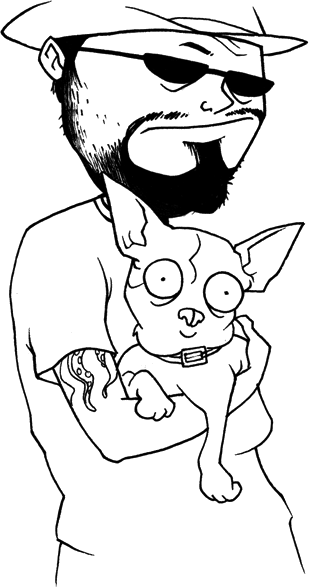Why Everything Sucks, Why That’s Awesome, and How It’s Changing Us
I think I’ve finally figured out why everything sucks. And it’s actually kind of awesome.
I bought my first guitar when I was 16 with my own hard-earned dishwasher money. It was a crappy classical 6-string. I thought the muffled plunking it made sounded like an orchestra. It didn’t.
In Outliers, Malcolm Gladwell argues that it takes 10,000 hours of practice to master anything. The Beatles played for 10,000 hours before they really became The Beatles. Before that, they were just another band with potential.
I never got to anywhere near The Beatles, but I improved over the years. I played in coffee shops and open mics. I wrote songs. I sold tapes. I even figured out how to play a decent finger-picked “Blackbird.”
Of course, not everyone who practices something for 10,000 hours becomes a master of it. I didn’t. But almost no one becomes a master of anything without putting in the time.
We all love the story of the childhood prodigy who picks up a violin for the first time and plays flawlessly. But that’s just a story. A one in a billion exception. For most of us, doing anything new, we’re going to suck at it. For a long time. And we may never not suck at it.
Suppose Gladwell is right and it really does take 10,000 hours to master something. Let’s set the bar lower. Let’s say that it takes half that time to be merely good at it. And just to be generous, let’s say half again just to not suck at something. That would mean it takes 2,500 hours of practice to just not be awful.
Now ask yourself, what have you done for 2,500 hours? That’s 104 days. 14 weeks of constant practice. Just under four months of nonstop repetition.
Very few of us have spent that much time doing anything besides sleeping or watching TV. I’m sure I’ve spent that much time reading, writing, making photos, doing design, and playing guitar.
But there’s one thing we have now that The Beatles didn’t have. I didn’t have it, either, back when I was making those sad plunking sounds.
Ladies and gentlemen, we have the internet – the biggest no-experience-required open mic night ever created. It connects us all, whether we’ve put in 10,000 hours or ten.
It’s only because of extremely fortuitous timing that the world was spared my 16-year-old Beatles impersonation. I put in those hours before everything was digital and duplicated for free, forever. Make no mistake, if MySpace had been around when I was 16, my furtive recordings would still be haunting me.
Maybe it’s only because of fortuitous timing that we even expect anyone to be good at anything now. We were spared hearing The Beatles when they were new. There’s no record of Shakespeare’s embarrassing early attempts. No MP3s of Bach’s school choir. Maybe if we were more used to seeing people suck before they get good at something, we wouldn’t expect perfection from day one.
Just think about the millions of people on the internet, each in their own timeline of learning something new. Most people will never get to 2,500 hours. They’ll never not suck. It’s not personal, it’s just math.
So that’s why the vast majority of everything on the internet sucks. It’s because most of the people doing it, most of the time, just haven’t put in the hours yet. And most of them never will. So only a small percentage of all the people online will ever be vaguely good at whatever it is they’re doing.
But here’s the thing: I think this is beautiful. People are out there, trying new things, learning the hard way, and sharing their experience. That gives me hope.
I’d rather have an all-inclusive network that everyone can contribute to, than a network that’s closed to everyone who isn’t perfect. How else will anyone ever learn to do anything?
And here’s the really interesting part: What if The Beatles had the internet? Sure, we would have had to endure their early sucky years, but they would have been able to learn from everyone else as well.
There are studies that show connecting to the internet changes our brains. And getting feedback is how we learn. Maybe all the sharing we do online is actually accelerating the learning curve. What if, once we connect online, we can actually lower that number even more? What if the tradeoff is between keeping the early embarrassing work private, and getting better at your new skill faster in public?
I know which one I’d choose. (I’m doing it right now.)
+
UPDATE: As usual, Clay Shirky said it better.
